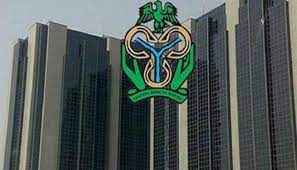The Central Bank of Nigeria (CBN) has reported that foreign companies withdrew a total of $5.86 billion from the Nigerian economy between October 2022 and March 2023. Of this amount, approximately $5.13 billion was repatriated as dividends by foreign investors.
According to the CBN’s ‘Economic Report, First Quarter 2023,’ the surge in dividend payments to non-resident foreign investors contributed to the widening of the deficit in the primary income account. This deficit expanded to $2.69 billion in the first quarter of 2023, up from $2.26 billion in the fourth quarter of 2022.
The primary income account encompasses various financial transactions, including compensation of employees and investment income. The CBN’s Quarterly Statistical Bulletin explained that investment income covers accrued income on foreign financial assets and liabilities, such as profits, interest, dividends, and royalties received by or paid to direct and portfolio investors. It also includes interest and commitment charges on loans (Other Investment Income).
Within the six-month period under review, dividend payments to foreign investors reached $5.13 billion. The CBN provided a detailed breakdown of these payments, revealing that the primary income account deficit widened due to a 34.9% increase in investment income payments, amounting to $3.09 billion, up from $2.77 billion in the fourth quarter of 2022.
Specifically, income from direct investment in the form of dividends rose by 12.1% to $2.71 billion, compared to $2.42 billion in the previous quarter. Additionally, interest payments on portfolio investments increased to $0.09 billion from $0.05 billion in the fourth quarter of 2022. Meanwhile, interest earnings on reserve assets grew by 35.7% to $0.20 billion, and interest payments on loans decreased slightly to $0.30 billion.
On a more positive note, the compensation of employees’ account maintained a surplus position, rising by 6.2% to $0.06 billion compared to the level in the fourth quarter of 2022.
A 2019 report from the CBN highlighted that the primary income account had been in deficit due to increased debt service payments and repatriation of dividends, income, and profits by foreign-owned companies. This outflow was noted to have a negative impact on the country’s real sector, as foreign exchange resources that could have been utilized for economic development were diverted to external debt servicing.
Foreign airlines have also encountered difficulties repatriating their funds from Nigeria. A recent report revealed that these airlines had repatriated $4.66 billion from Nigeria in 15 months, yet they faced challenges in accessing foreign exchange due to its scarcity in the country.
Addressing this issue, President Bola Tinubu pledged in his inaugural address to review multiple taxation and anti-investment inhibitions. He assured investors and foreign businesses that they would be able to repatriate their dividends and profits.
The CBN’s first-quarter economic report further disclosed that foreigners reduced their claims on the Nigerian economy during this period. A capital reversal of $0.78 billion was recorded in the first quarter of 2023, compared to an inflow of $1.94 billion in the fourth quarter of 2022. This reversal resulted from portfolio investment reversals and the withdrawal of foreign currency and deposits from domestic banks.
Uncertainties surrounding the 2023 general elections and investors’ search for safer havens contributed to this divestment. Additionally, a portfolio investment reversal of $1.17 billion was recorded, contrasting with an inflow of $0.34 billion in the fourth quarter of 2022, driven by the redemption of investments in short-term debt securities by non-resident investors.










